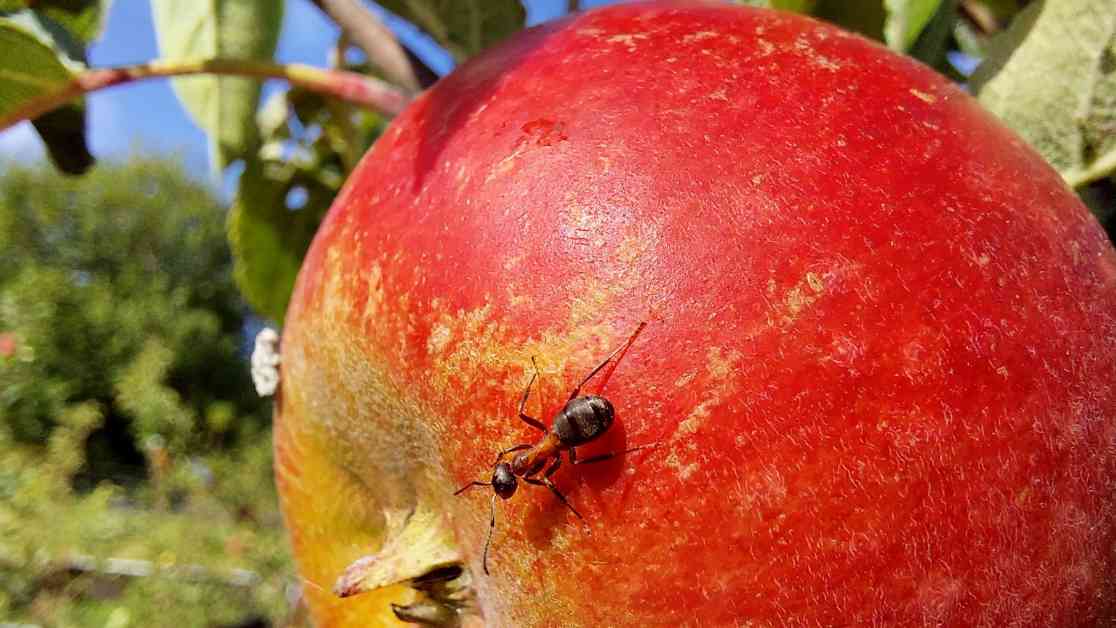Ants: Nature’s Unsung Heroes
In the bustling world of agriculture, where climate change is wreaking havoc on crop production, there may be an unexpected savior lurking right beneath our feet. Ants, those tiny insects we often dismiss as mere nuisances, are emerging as powerful allies in the battle against plant pathogens and pests.
The Secret Weapon Within Tiny Footprints
Research conducted by biologist Ida Cecilie Jensen at Aarhus University in Denmark has uncovered the incredible antimicrobial properties of ants. These industrious creatures leave microscopic footprints that contain antibiotic microorganisms, effectively shielding trees from harmful pathogens and pests. With an estimated 20 quadrillion ants on Earth at any given time, their potential impact on agriculture is immense.
Ants, with their extraordinary collective intelligence, social structures, and robust community networks, have much to offer in the fight against climate-induced challenges in farming. Their ability to combat plant diseases by depositing beneficial microbes on crops has already shown promising results in orchards across various countries.
Unleashing Ant Power in Agriculture
Jensen’s groundbreaking research has demonstrated that wood ants and weaver ants, among other species, can significantly reduce crop diseases like apple scab and mango anthracnose. By strategically deploying these natural insecticides, farmers can enhance yields, reduce reliance on synthetic pesticides, and mitigate the environmental impact of chemical treatments.
The key lies in understanding how ants function and leveraging their inherent antimicrobial properties. By promoting native ant species as biological agents in fields and farms, Jensen envisions a sustainable and cost-effective solution to combatting crop diseases. Her innovative approach of boosting existing ant populations through simple measures like rope bridges and sugary extracts offers a practical alternative to traditional pest management methods.
Embracing Nature’s Diversity for a Greener Future
While some experts remain skeptical of the efficacy of ant-based biopesticides compared to existing products, Jensen’s unwavering belief in harnessing nature’s diversity highlights the importance of exploring unconventional solutions to agricultural challenges. As climate change continues to disrupt farming practices, embracing the potential of ants and other biological control agents may hold the key to a more resilient and sustainable agricultural future.
In a world where innovation and adaptation are essential for survival, perhaps it’s time to look to the humble ant for inspiration. As Jensen aptly puts it, “I don’t believe in one solution that could fit everything, but I definitely think that ants and other biological control agents are going to be a huge part of the climate puzzle in the future.” So, the next time you see a trail of industrious ants marching through your backyard, remember that they might just be nature’s unsung heroes in the fight against climate change.














